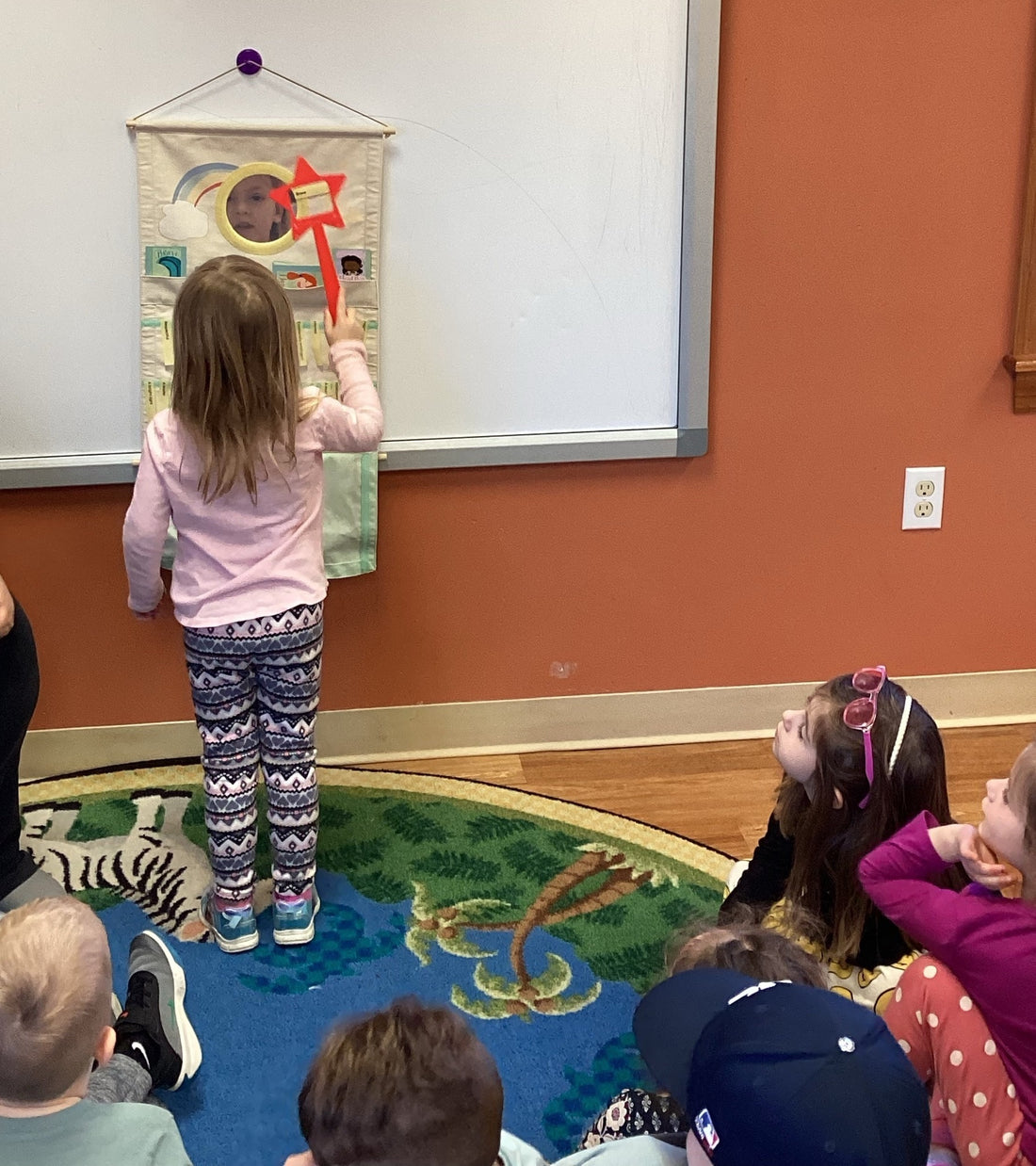The Power of Positive Affirmations + Mirror Talk for Kids: Building Confidence from Within

In a world filled with constant stimulation and external influences, it's crucial to equip children with the tools they need to navigate life's challenges with confidence and resilience. One powerful tool that parents and caregivers can introduce to young ones is the practice of positive affirmations and mirror talk. These simple yet effective techniques can help children develop a strong sense of self-worth, boost their self-esteem, and foster a positive mindset from an early age.
Understanding Positive Affirmations
Positive affirmations are statements or phrases that affirm and reinforce positive beliefs about oneself. They are designed to challenge and replace negative thoughts with more empowering ones. For children, positive affirmations can be tailored to address specific areas where they may need encouragement or support. Whether it's boosting confidence, overcoming fears, or cultivating a growth mindset, affirmations can be a valuable tool in promoting emotional well-being.
The Importance of Mirror Talk
Mirror talk involves looking into a mirror while saying positive affirmations aloud. This practice not only reinforces the affirmations verbally but also adds a visual component, allowing children to see themselves as they speak words of encouragement. Mirror talk can be especially effective in building self-confidence and self-acceptance, as children learn to connect with and appreciate themselves on a deeper level.
How to Introduce Positive Affirmations and Mirror Talk to Kids
- Keep it Simple: Choose affirmations that are age-appropriate and easy for children to understand. Use simple language and focus on affirming qualities such as kindness, resilience, and creativity.
- Make it Fun: Turn positive affirmations into a game or a daily ritual that children look forward to.
- Lead by Example: Children learn best by observing the behavior of adults around them. Incorporate positive affirmations and mirror talk into your own daily routine, and encourage children to join in. Seeing you practice self-love and self-acceptance will reinforce the importance of these habits.
- Encourage Self-Expression: Allow children to come up with their own affirmations based on their individual strengths and interests. This fosters a sense of autonomy and ownership over their self-talk, empowering them to create their own positive narratives.
The Impact of Positive Affirmations and Mirror Talk
The benefits of incorporating positive affirmations and mirror talk into children's lives are numerous and far-reaching:
- Improved Self-Esteem: Regular practice of affirmations can help children develop a positive self-image and belief in their abilities.
- Resilience in the Face of Challenges: Affirmations can equip children with the mental resilience needed to bounce back from setbacks and persevere in the face of adversity.
- Enhanced Emotional Well-Being: By promoting self-love and self-acceptance, affirmations contribute to greater overall emotional well-being and mental health.
- Cultivation of a Growth Mindset: Affirmations that emphasize effort, progress, and foster a growth mindset, encouraging children to embrace challenges and view failures as opportunities for growth.
In Conclusion
Positive affirmations and mirror talk are simple yet powerful tools that can help children develop a strong sense of self-worth and resilience. By incorporating these practices into their daily routines, parents and caregivers can empower children to navigate life's ups and downs with confidence, kindness, and a belief in their own abilities. Together, let's foster a generation of children who not only believe in themselves but also lift others up with their words and actions.
